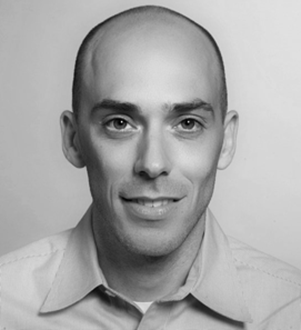Design Elements of Complex Systems
Different schools of thought representing diverse areas of scientific research, such as computer science, sociology, mathematics, physics, economics, and biology, are all placing increasing focus on the concept of complex systems. Intriguingly, many common design elements have emerged among these different fields of science. Models of complex systems that capture system structure and dynamics are commonly explained by a few governing principles, such as survival of the fittest, rich-get-richer, and duplication-divergence. In fact, there are many forces and design elements acting in concert to shape the structure and behavior of many different types of complex systems. These forces and design elements work in parallel or, sometimes, counteract one another to produce the final behavior of the system, and these interactions manifest as continuous changes, all in one general direction of growth, improved fitness, and increased complexity.
In this talk, I will present concepts from complex systems theory and provide examples from different fields about how such design elements are at play.
Date and Time
Location
Hosts
Registration
-
 Add Event to Calendar
Add Event to Calendar
Loading virtual attendance info...
- Contact Event Hosts
- Co-sponsored by Fairleigh Dickinson University
Speakers
 Dr. Avi Ma'ayan of Icahn School of Medicine at Mount Sinai
Dr. Avi Ma'ayan of Icahn School of Medicine at Mount Sinai
Design Elements of Complex Systems
Dr. Ma’ayan is a Mount Sinai Endowed Professor in Bioinformatics, Professor in the Department of Pharmacological Sciences, and the Director of the Mount Sinai Center for Bioinformatics. Dr. Ma'ayan is also Principal Investigator of several NIH-funded center. The Ma'ayan Laboratory develops bioinformatics tools to help experimental biologists form novel hypotheses from high-throughput omics data, while aiming to better understand the structure and function of regulatory networks in mammalian cellular and multi-cellular systems. Dr. Ma’ayan is an FDU alumni receiving both a BSc and an MSc in Computer Science
Biography:
Dr. Avi Ma'ayan is a Mount Sinai Endowed Professor in Bioinformatics, Professor in the Department of Pharmacological Sciences, and the Director of the Mount Sinai Center for Bioinformatics. Dr. Ma'ayan is also Principal Investigator of several NIH-funded center. The Ma'ayan Laboratory develops bioinformatics tools to help experimental biologists form novel hypotheses from high-throughput omics data, while aiming to better understand the structure and function of regulatory networks in mammalian cellular and multi-cellular systems. Dr. Ma’ayan is an FDU alumni receiving both a BSc and an MSc in Computer Science
Address:United States
Agenda
Different schools of thought representing diverse areas of scientific research, such as computer science, sociology, mathematics, physics, economics, and biology, are all placing increasing focus on the concept of complex systems. Intriguingly, many common design elements have emerged among these different fields of science. Models of complex systems that capture system structure and dynamics are commonly explained by a few governing principles, such as survival of the fittest, rich-get-richer, and duplication-divergence. In fact, there are many forces and design elements acting in concert to shape the structure and behavior of many different types of complex systems. These forces and design elements work in parallel or, sometimes, counteract one another to produce the final behavior of the system, and these interactions manifest as continuous changes, all in one general direction of growth, improved fitness, and increased complexity.
In this talk, I will present concepts from complex systems theory and provide examples from different fields about how such design elements are at play.

